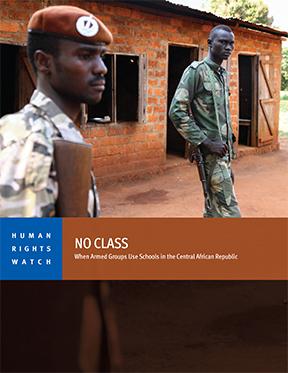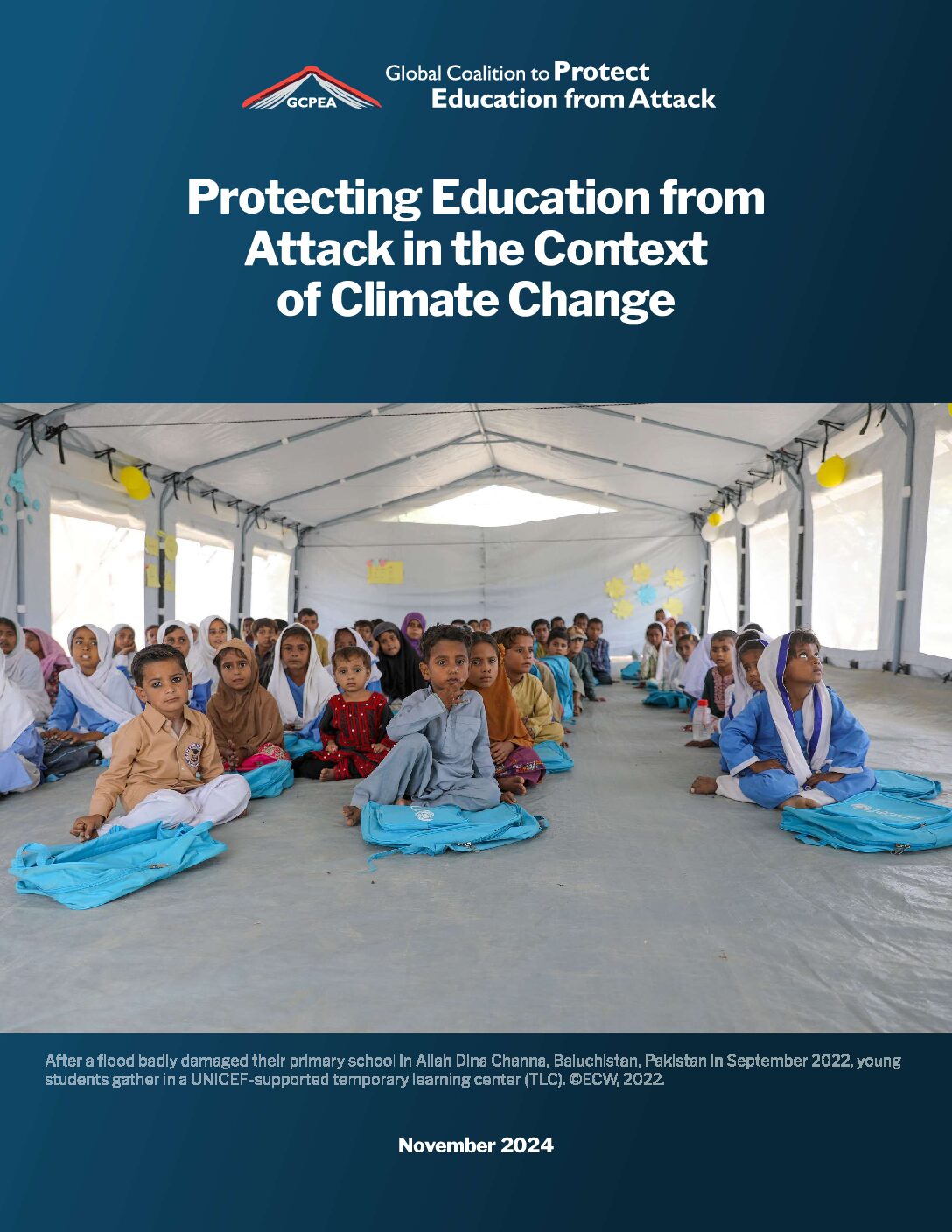GCPEA News
Central African Republic: Armed Groups Using Schools
Human Rights Watch, March 23, 2017
(Nairobi) – Armed groups in the Central African Republic have occupied, looted, and damaged school buildings, preventing children from getting an education, Human Rights Watch said in a report released today.
The 39-page report, “No Class: When Armed Groups Use Schools in the Central African Republic,” documents how armed groups, and even soldiers from the United Nations peacekeeping mission, known as MINUSCA, have used school buildings as bases or barracks, or based their forces near school grounds. The government and the peacekeeping mission should increase protection for students and schools in areas of the country affected by armed conflict, Human Rights Watch said.
“Children have lost years of education in many parts of the Central African Republic because armed groups have failed to treat schools as places of learning and sanctuary for children,” said Lewis Mudge, Africa researcher at Human Rights Watch and co-author of the report. “The government and the UN can do more to ensure that fighters stay away from classrooms, and that children can safely go to school.”
The report is released five days before the Second International Safe Schools Conference, hosted by the Argentine government in Buenos Aires. The conference will highlight the global problem of attacks on students, teachers, and schools, as well as the Safe Schools Declaration, an international political commitment endorsed by the Central African Republic and 59 other countries.
Human Rights Watch interviewed more than 40 people for the report, including school-age children, parents, teachers, and armed group commanders in the provinces of Lobaye, Nana-Mambéré, Nana-Grébizi, Ouham-Pendé, Ouham, and Ouaka.
“It is not normal for a child to lose this much time, it has blocked my future,” said an 18-year-old man in Ouaka province who had lost four years of schooling because fighters for the Seleka, an armed group in the country’s ongoing conflict, have occupied his school. “I wanted to be a doctor, but that is impossible without school.”
The Central African Republic has been in crisis since late 2012, when the mostly Muslim Seleka rebels opened a military campaign against the government. The Seleka seized the capital, Bangui, in March 2013, in a period marked by widespread human rights abuse. In mid-2013, Christian and animist anti-balaka militia organized to fight the Seleka. The anti-balaka have also committed widespread abuse, especially in western parts of the country.
Violence by armed groups and attacks on civilians have risen sharply since October 2016, particularly in the center of the country. Fighting between two Seleka factions in the Ouaka and Haute-Kotto provinces has led to increased attacks on civilians and displaced tens of thousands of people.
The Seleka are responsible for eight of the cases documented in the report, but anti-balaka fighters have also occupied and damaged schools. In two cases, UN peacekeepers used a school as a base, in violation of UN regulations, but the forces left both schools after Human Rights Watch informed UN officials.
The use of schools by armed forces deteriorates, damages, and destroys the country’s already insufficient and poor-quality education infrastructure. Fighters who occupy schools frequently burn furniture and books for cooking fuel. In one case Human Rights Watch documented, an anti-balaka fighter struck a teacher on the head with a knife when the teacher tried to stop him from burning a desk.
Even after fighters have vacated a school, their proximity to school grounds can frighten students and teachers into staying away. “The Seleka are just next to the school and the parents are too scared to send their kids,” a teacher from Nana-Grébizi province said. “The Seleka think it is normal to be based in schools.”
The UN Office for the Coordination of Humanitarian Affairs estimated in November 2016 that 2,336 schools across the country were operational but that at least 461 were not. The key reasons schools are closed, the UN said, are insecurity, a lack of teachers, displacement caused by fighting, the destruction of school property, or the occupation of schools by armed groups.
The Central African Republic signed the Safe Schools Declaration in June 2015, committing itself to protect schools from attack and military use. This important step spurred MINUSCA to begin clearing schools that were occupied by militias. The UN mission made progress in 2016, but was undermined when peacekeeping forces themselves used schools as bases and barracks.
“By endorsing the Safe Schools Declaration, the government demonstrated the value it places on education for the development and stability of the country,” Mudge said. “Armed groups and UN peacekeepers should respect the declaration’s call to protect schools and help children get the education they want and deserve.”





